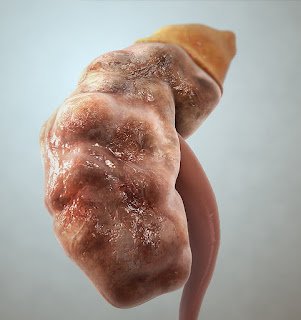maintain a healthy diet
Eating well is very important in case of kidney disease. A healthy diet not only helps you feel better, but also helps reduce kidney disease. At first it may seem like a big lifestyle change, but here are some ways to improve your diet:
1. Minimize salt intake.
HOW TO DETOX YOUR KIDNEY - CLICK HERE
Foods high in salt can put a strain on your kidneys. Try to keep your sodium intake below 2,000 milligrams per day. Remember that takeaways in restaurants and grocery stores are full of salt. A restaurant meal could easily represent enough salt for an entire day. Prepare meals at home with healthy ingredients to make sure the amount of salt in your diet stays low.
2. Avoid high-protein diets.
A good general rule of thumb is to eat one protein meal (about the size of a card) with each meal. Any more and your kidneys will work overtime.
Choose foods high in saturated fat and low in cholesterol. People with kidney disease have a higher risk of heart disease, so keep an eye on your cholesterol levels. Instead of butter and margarine, choose foods high in saturated fat and low cholesterol, such as fish, lean meats, egg substitutes and sprays.
4. Quit smoking.
Smoking greatly increases the risk of all kidney problems, including heart disease. Work with your doctor to find ways to quit smoking.
fitness
1. Maintain a healthy weight.
Being overweight puts pressure on your kidneys, raises your blood pressure and increases your risk of developing diabetes, a leading cause of kidney disease.
2. Go. Exercise improves your mood, helps you maintain a healthy weight, and keeps your blood pressure in check. The more you can walk, the better you will feel!
Listen to your doctor
1. Understand GFR (glomerular filtration rate).
GFR roughly measures the remaining percentage of kidney function. Knowing your kidney function can help you protect your health and prepare for future treatments.
2.2. Check your kidneys regularly.
Kidney disease is often silent and has no symptoms unless you need dialysis or a transplant. Regular kidney exams can help identify problems early and prevent kidney loss.
3. If you have diabetes, check your blood sugar. Diabetes affects more than 40% of people with kidney failure. Uncontrolled diabetes can also lead to heart disease, vascular disease, loss of limbs, and blindness. Controlling blood sugar levels not only benefits kidney function, it can even save lives.
Avoid over-the-counter anti-inflammatory drugs. If you have chronic kidney disease, avoid taking anti-inflammatory drugs such as ibuprofen, Advil and Motrin. Unless you have chronic kidney disease, use these medications only when needed. If you take these medications regularly, talk to your doctor first, as your doctor may want to check your kidney function first.
5. Control your blood pressure. Controlling your blood pressure is the most important thing you can do to extend the life of your kidneys. Check your blood pressure and work with your doctor to keep it under control.
Taking care of your kidneys can help maintain vital kidney function. The first step is to have a nephrologist - a kidney doctor - who will monitor your kidney function and advise you on the steps you can start living with kidney disease.
HOW TO DETOX YOUR KIDNEY - CLICK HERE


